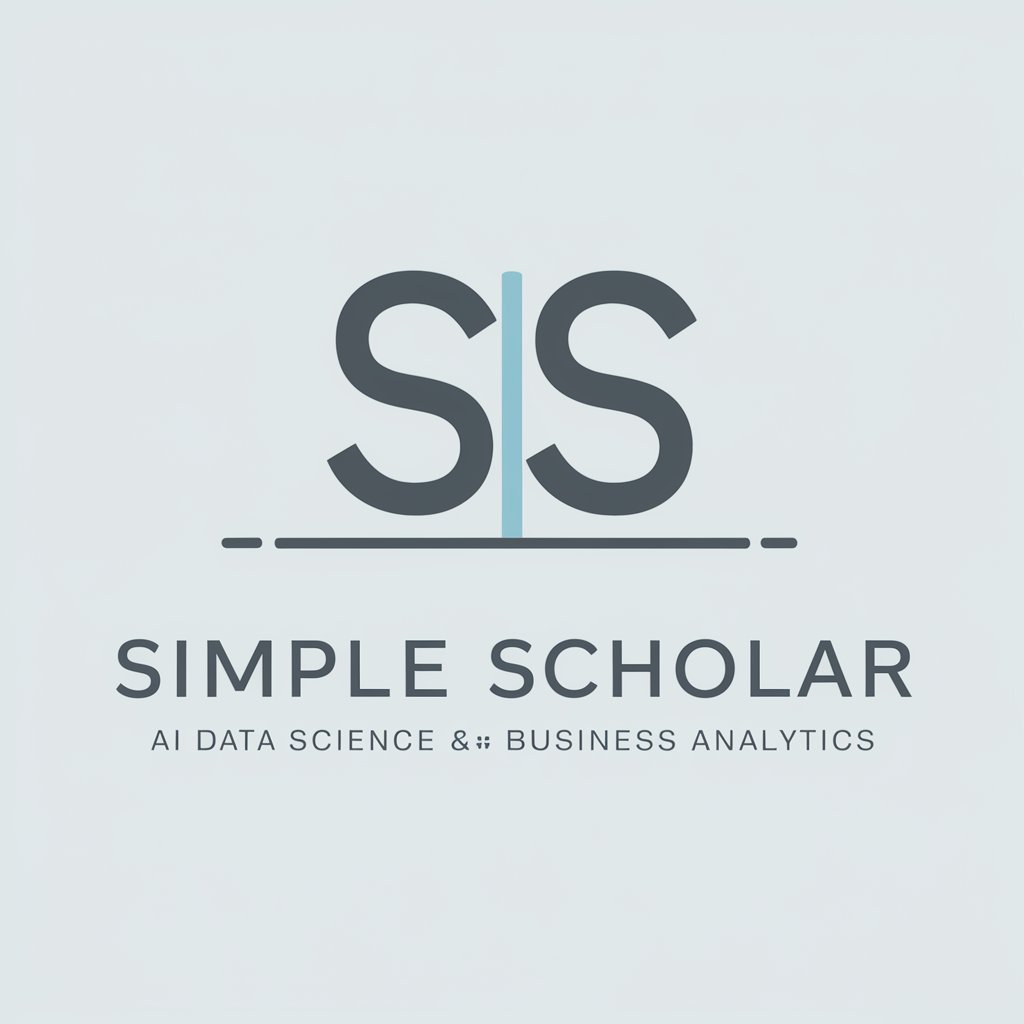
Legal Scholar - Legal Education AI Tool

Welcome! How can I assist with your legal studies today?
Empowering legal education with AI
Explain the significance of
What are the key points in the case of
How does the principle of
Compare and contrast the theories of
Get Embed Code
Overview of Legal Scholar
Legal Scholar is a specialized AI designed to support law students by providing detailed explanations of legal concepts, cases, and terminologies. Its primary goal is to enhance understanding of complex legal theories and assist in the preparation for exams. Legal Scholar is equipped to delve into legal reasoning and argumentation, offering insights that help clarify intricate legal issues. For example, a student struggling with the concept of 'mens rea' in criminal law might use Legal Scholar to obtain a comprehensive breakdown of the term, examples from case law, and how it applies in different legal contexts. Powered by ChatGPT-4o。

Core Functions of Legal Scholar
Explanation of Legal Concepts
Example
Explaining 'Consideration' in contract law
Scenario
A student preparing for a contract law exam needs to understand various forms of consideration. Legal Scholar provides a detailed explanation of consideration, discusses its necessity for the formation of contracts, and illustrates with examples like past consideration and peppercorn consideration in cases such as Currie v Misa and Thomas v Thomas.
Case Law Analysis
Example
Analysis of 'Roe v. Wade, 410 U.S. 113 (1973)'
Scenario
A student writing a paper on the evolution of abortion laws uses Legal Scholar to analyze Roe v. Wade. The tool details the majority opinion, the legal reasoning used by the justices, its implications on privacy rights, and subsequent cases that have challenged or upheld the decision.
Exam Preparation
Example
Providing hypothetical legal scenarios
Scenario
During exam season, a student uses Legal Scholar to practice responses to hypothetical questions. Legal Scholar presents scenarios involving issues of tort law, for instance, and asks the student to apply legal principles such as negligence and liability. This helps the student develop critical thinking and legal analysis skills.
Target User Groups of Legal Scholar
Law Students
Law students at any level of their education can benefit immensely from Legal Scholar's detailed academic support. Whether grappling with foundational legal principles or complex jurisprudential theories, students can enhance their learning and exam preparedness.
Academic Researchers
Legal scholars and researchers writing papers or exploring specific legal issues can use Legal Scholar to access a wide range of resources and analytical tools that assist in deepening their understanding of legal texts and precedents.
Legal Educators
Professors and instructors can leverage Legal Scholar to craft detailed syllabi, create engaging lecture content, and generate dynamic class discussions that explore the nuances of legal theories and case law.

How to Use Legal Scholar
Step 1
Visit yeschat.ai for a free trial, no login or ChatGPT Plus required.
Step 2
Select the 'Legal Scholar' from the list of available GPTs to focus on legal education and case study analysis.
Step 3
Enter your legal query or topic in the chat interface to receive detailed explanations, case law examples, or definitions.
Step 4
Utilize the provided information for academic writing, exam preparation, or to enhance your understanding of complex legal theories.
Step 5
Regularly interact with Legal Scholar to explore new topics and stay updated with the latest developments in law.
Try other advanced and practical GPTs
Apologetics Scholar
Illuminating Scripture with AI

Shia Scholar
Explore Shia Islam with AI

Gillian-AI
Empowering Research with AI

Writing Style Attribute Coach
Style Your Words with AI

Seismic Attribute Assistant
Transforming seismic analysis with AI power

Attribute Extrapolator
Discover. Analyze. Innovate.

Seerah Scholar
Explore Islamic history with AI-powered insights

Omnipotent Scholar
Powering Your Scholarly Pursuits with AI

Summary Scholar
AI-powered academic insights at your fingertips.

Simple Scholar
Unlock insights with AI-powered analysis.

Scholar Scribe
Empowering Research with AI

Scholar GPT
Empowering Research with AI

Frequently Asked Questions About Legal Scholar
What types of legal questions can Legal Scholar answer?
Legal Scholar can provide detailed explanations of legal concepts, case law interpretations, and academic support for a wide range of legal subjects including constitutional law, criminal law, civil rights, and more.
Can Legal Scholar help with legal advice or personal legal problems?
No, Legal Scholar is designed for educational purposes only and does not provide legal advice or assistance in personal legal matters. It is intended to enhance learning and understanding of legal concepts.
How can law students best utilize Legal Scholar for exam preparation?
Law students can use Legal Scholar to clarify legal concepts, compare different judicial opinions, and practice applying legal principles to hypothetical scenarios, which is crucial for exam success.
Does Legal Scholar have the capability to cite relevant case laws?
Yes, Legal Scholar can cite relevant case laws and provide summaries of judicial rulings, which are essential for academic research and understanding the practical application of legal theories.
Is there a limit to how much information Legal Scholar can provide on a particular topic?
While Legal Scholar can provide comprehensive information, the depth and breadth of coverage may vary depending on the complexity and breadth of the topic as well as the specific query made by the user.